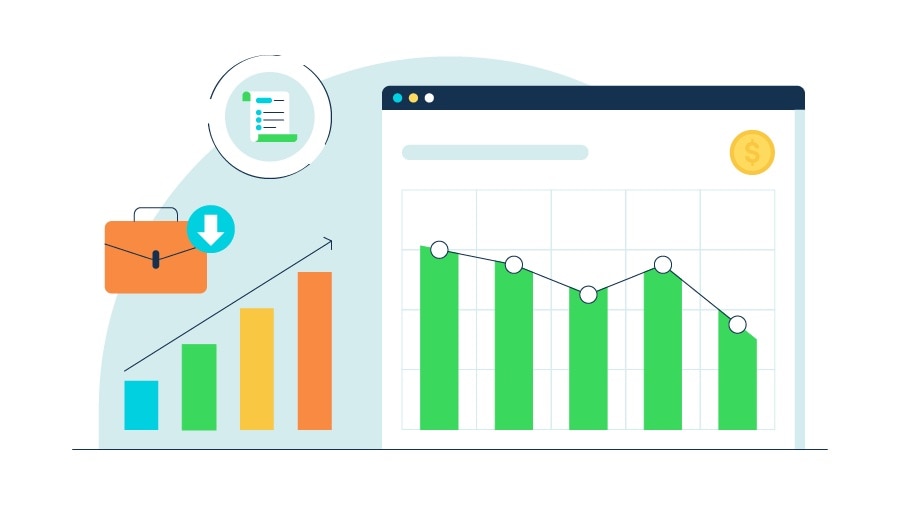Ontario’s minimum wage was raised to $15 per hour in January 2019 and politicians, economists, small business owners, and analysts are all speculating on how the increase in minimum wage may affect small businesses in particular.

How Ontario’s Minimum Wage Increase Affects Small Businesses
How Does Minimum Wage Affect Small Businesses?
A shift in minimum wage is likely to impact only some small businesses, depending on the industry. Only a few industries, such as the restaurant, retail, and hospitality, tend to pay entry-level workers minimum wage. Businesses in industries such as manufacturing, health care, marketing, and technology generally offer their workers a salary that’s higher than minimum wage in order to remain competitive.
Reevaluating Job Value
Small businesses that don’t pay workers minimum wage might experience an indirect impact when the shift occurs. Employers decide how much to pay their workers based on skill and the work done, but they also select rates that are likely to help them retain their employees. Generally, jobs tend to pay more if they involve more specialized experience, training, and recruitment efforts. In these situations, businesses need to focus on retention so they don’t lose too much money in recruiting, staffing, and training new employees.
To ensure they keep current employees on board, small businesses may have to increase their wages. For instance, a small business with a starting wage of $15 per hour was competitive in 2017, when Ontario’s minimum wage was less than $12. But in 2019, when minimum wage is $15, that rate is no longer competitive, so businesses have to adjust and reevaluate how they assess job value. Otherwise, they may face excess training and hiring costs.
Changing Business Practices After Minimum Wage Increases
To afford the increases to minimum wage, many small businesses have to adjust their business models. Some businesses simply need to reduce their profit targets and take their extra payroll costs from their profits. Businesses that already operate on tight profit margins must find money in other places.
In particular, businesses may increase sales targets or raise prices. John Schmitt from the Centre for Economic and Policy Research in Washington, D.C. created a comprehensive report based on multiple studies on the effect of minimum wage increases. He reports that the most popular ways businesses deal with increases in minimum wage are by boosting productivity and reducing turnover.
Boosting Productivity
Workers may become more productive in the face of wage increases. If workers don’t make enough money to survive, they’re distracted from their work by worries about how they’re going to pay their bills. When businesses alleviate those stresses by paying higher wages, they’re likely to enjoy more productive workers.
Additional Benefits of a Minimum Wage Increase
The Employee Standards Act, which increases minimum wage, also extends 10 personal leave days to employees each year, two of which are paid. On top of that, employers are no longer allowed to pay different rates to part-time and full-time workers who do the same job. The act also includes stronger provisions to prevent employers from misclassifying employees as independent contractors.
Those additional safeguards help ensure that a worker who’s actually an employee and not a freelancer or contractor receives the same treatment and benefits as all employees of the company. If you represent independent contractors, help to make sure they’re classified correctly. Misclassification requires employers to pay extra payroll taxes and lose protections granted to employees.
Effect on Tax Benefit
Help your clients figure out how their wage increases may affect their tax benefits. In particular, the Canada Child Benefit, the GST/HST credit, and the working income tax benefit are income-based credits. As people earn more, they receive reduced benefits until the benefits phase out. If your clients receive monthly or quarterly benefits through these credits, use the Canada Revenue Agency’s (CRA) online benefits calculators to help your clients know what to expect so they can budget accordingly.
Potential Job Losses
The minimum wage increase may result in some people losing their jobs. Groups of people who are most likely to lose their jobs are teens, young adults, and immigrant workers, as these workers are more likely to receive minimum wage.
If you prepare taxes or complete accounting processes for people who earn minimum wage, prepare to answer questions about Ontario’s minimum wage increases or about minimum wage in general. Help your clients understand how these changes affect them so you can offer them timely, useful advice.
Determining the True Impact of Minimum Wage Increases
Until all the changes take effect, no one can conclusively determine how the increases may affect small businesses. Studies on minimum wage increases show inconclusive results on how these increases affect the economy in general or small businesses in particular. The effects largely depend on the percentage of the increase and the strength of the economy at the time.
QuickBooks helps streamline tax prep and accounting processes. Accelerate your year-end adjustment process and start saving time on corporate returns with QuickBooks Online Accountant. Sign up for free.


